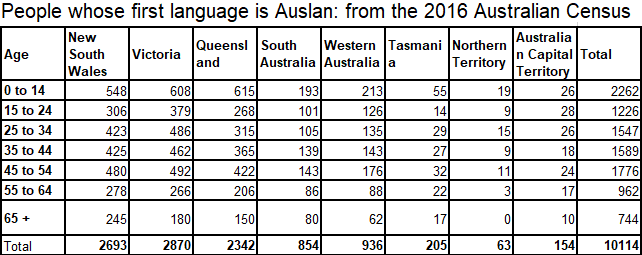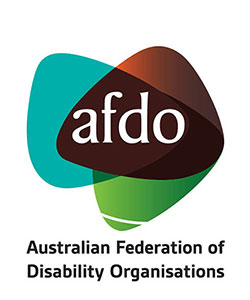The Government’s plan to make the National Auslan Interpreter Booking & Payment Service (NABS) a part of the National Disability Insurance Scheme (NDIS) was going to be bad news for about 700 Deaf customers.
The NABS is a service that provides interpreters to attend private medical appointments to assist people who communicate in Australian Sign Language.
- NABS books and pays for an accredited interpreter to assist people in their medical consultations that attract a Medicare rebate, or specified health consultations, provided in a private medical practice by a general practitioner, specialist or health professional.

Most, but not all people whose first language is Auslan are eligible for the NDIS, which funds their supports. So, the plan makes some sense in the new world of disability services created by the NDIS: the problem was in its execution and timing.
- NABS books and pays for an accredited interpreter to assist people whose first language is Australian Sign Language in their medical consultations that attract a Medicare rebate, or specified health consultations, provided in a private medical practice by a general practitioner, specialist or health professional.
Most people whose first language is Auslan are eligible for the NDIS, which funds their supports. So, the plan makes sense in the new world of disability services created by the NDIS: the problem was in its execution and timing.
As a result of moving NABS to the NDIS, starting on 1 July 2020:
- NDIS participants (people with a NDIS plan) and people whose first language is Auslan aged over 65 would continue to have free access to NABS
- People who are not in the NDIS on this date were set to lose their free access to NABS
This left about 700 people out in the cold because they don’t have NDIS plans to pay for their NABS usage – payment would come from their own pockets. It is already difficult for Auslan users to interact with the health system, without the addition of this unwanted complication.
- It could have led to people not getting help for acute health conditions
- It could have resulted in people not being able to see their GP if they were showing symptoms of COVID-19 – this would put the entire community at risk in this pandemic.
Deafness Forum presented a case to the Government to continue with the current arrangements until after the pandemic in 2021 to provide a safety net for these Auslan users who would lose free access to NABS. The Government is to be applauded for being immediately responsive to our case to make changes to protect vulnerable citizens. It was a particularly important concession in the midst of this health pandemic.
The Government acknowledged that 700 or so Deaf people who currently use the service but do not have NDIS plans would be badly affected, so it decided to continue the current arrangements till 31 March 2021.
- This allows extra time for these people to test their eligibility to join the NDIS – if they are eligible they will have free access to NABS after 31 March 2021.
- If they choose to not apply to join the NDIS in this time, or if it is found that they are not eligible for the NDIS, they will not have free access to NABS after 31 March 2021. They will have to pay for the service.
- Deafness Forum will be in ongoing contact with the NDIS to learn about which people among the 700 do not join the NDIS by 31 March 2021, and what can be done for them.
Deafness Forum recommended to the Government that the various Deaf Societies in states and territories, and the organisation Deaf Australia which is there to preserve the language of Auslan should be asked to assist these people.
People over 65
The change has no effect on people who are aged over 65 on 31 March 2021 and for whom Auslan is their first language. They currently have, and they will continue to have free access to NABS into the future and certainly, beyond 31 March next year.
Table: All people in Australia whose native language is Australian Sign Language.




